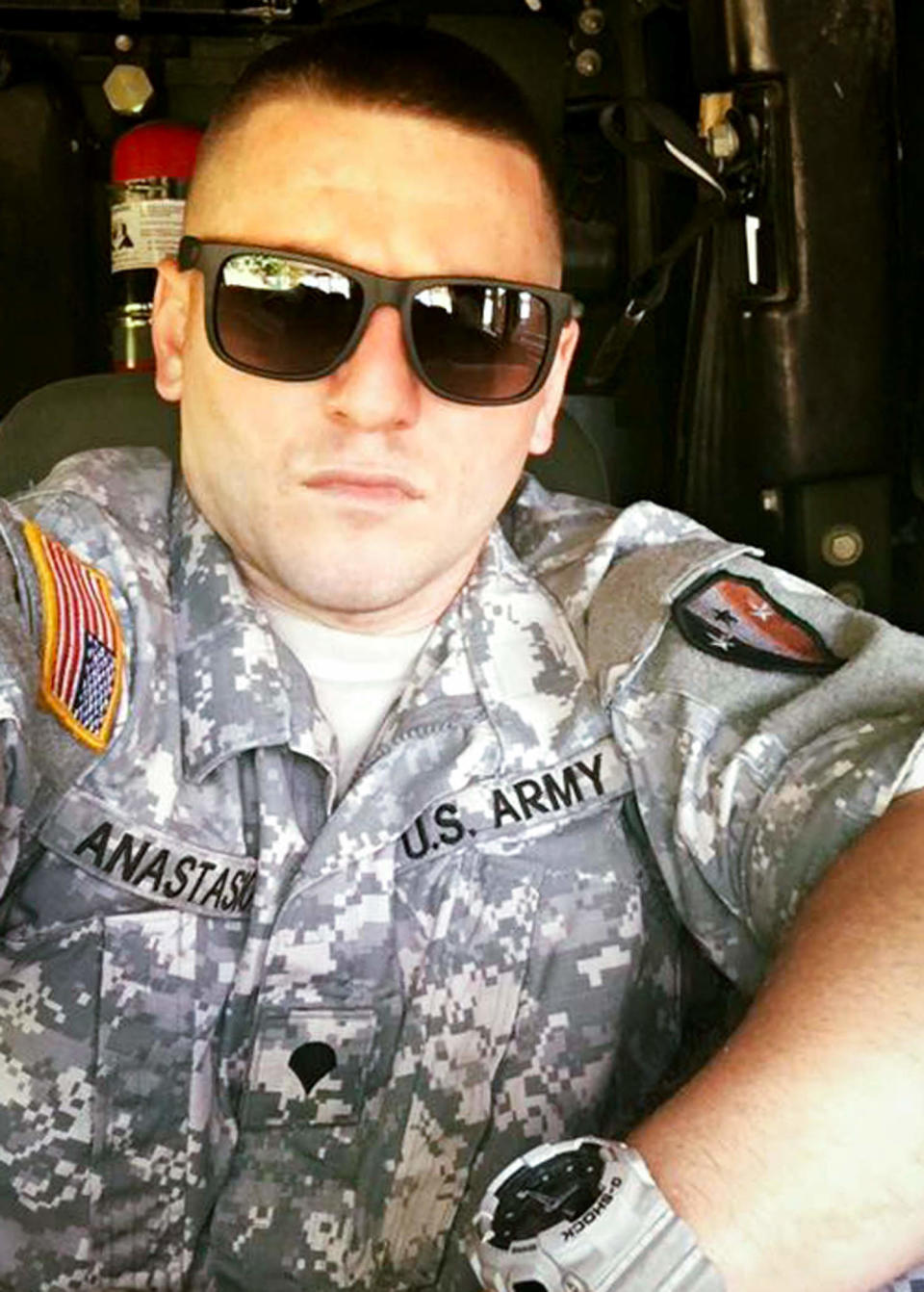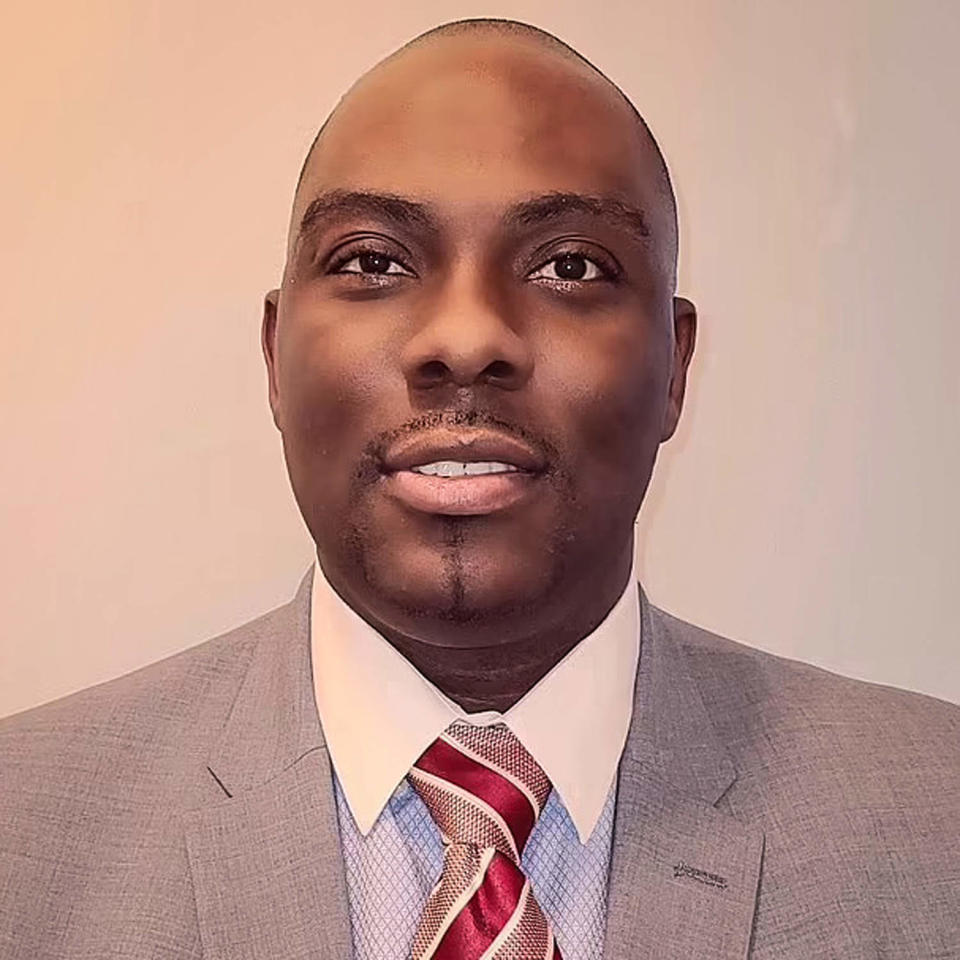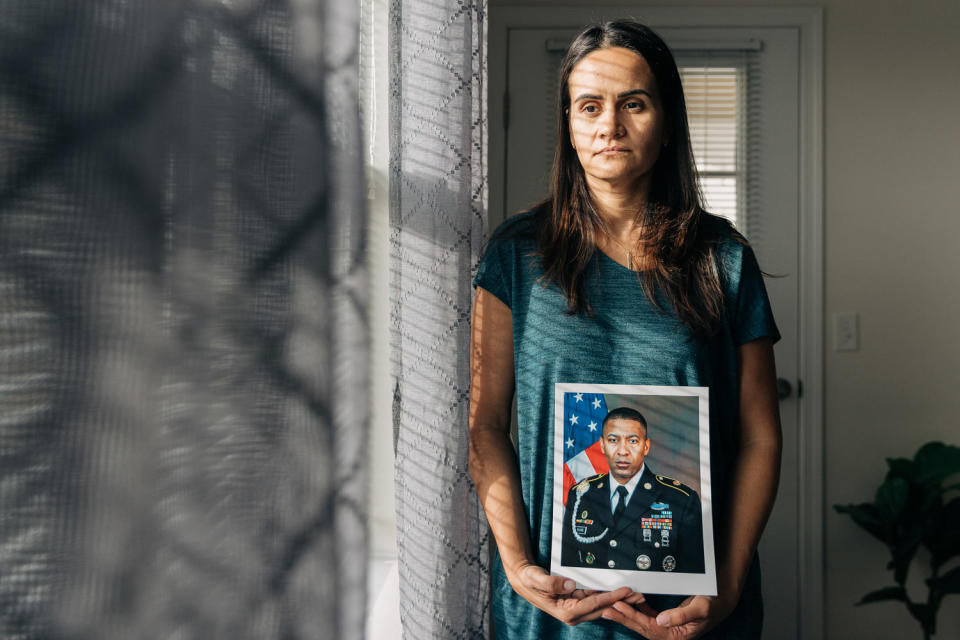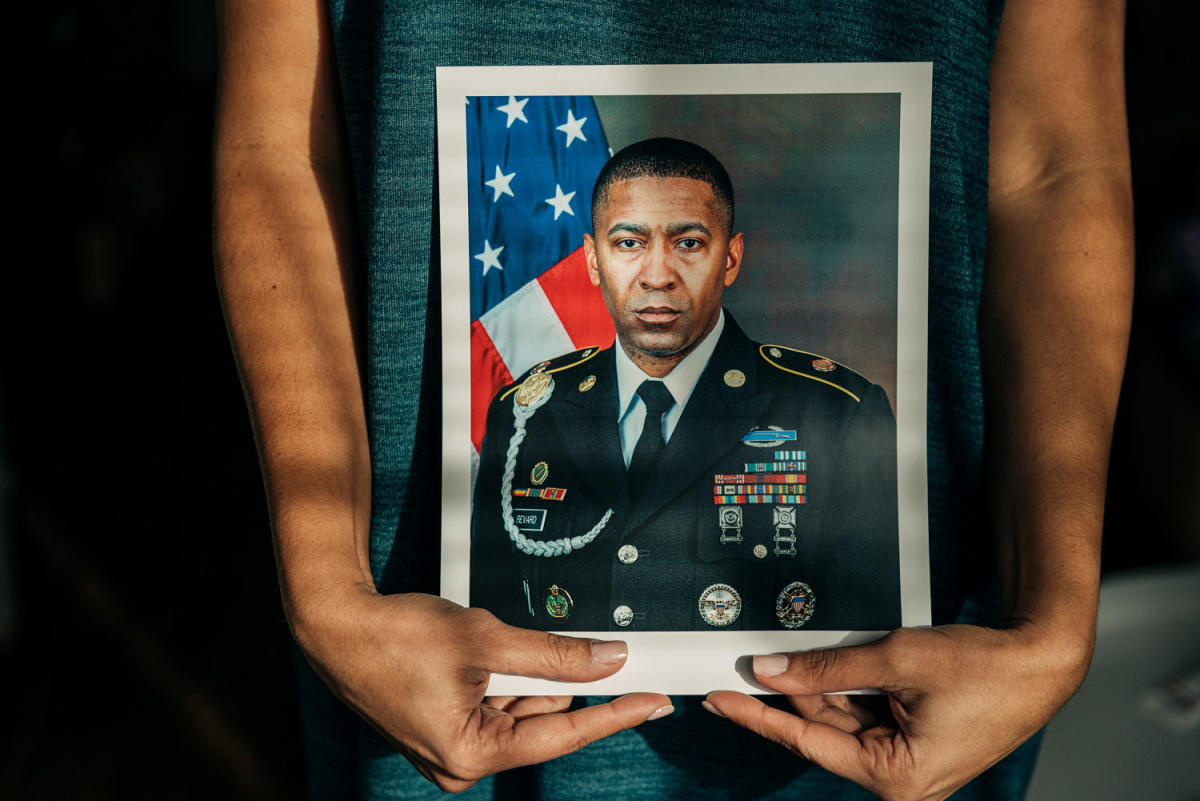As she mourned the sudden death of her son, a 26-year-old Army sergeant felled by a heart condition, Sharon Hartz learned some surprising news:
She would receive a death benefit and life insurance totaling half a million dollars.
But she said the Army’s casualty assistance officer, who had helped her with the funeral arrangements, told her she first had to meet with an Army financial counselor.
“[He] insisted that we be educated on the finances so they were properly handled,” she said.

Hartz and the officer drove to Fort Dix, where she first sat down with Caz Craffy, an Army reservist whose 9-to-5 civilian job was offering advice about money to Army families.
Craffy was “very charismatic,” Hartz said. “Very, very friendly, very welcoming.”
That turned out to be a façade. Craffy was a con man, who has now pleaded guilty to bilking Hartz and dozens of other Gold Star families — the survivors of service members who died on active duty — out of millions of dollars.
“I’ve lost a little over $200,000,” she said. “Now I’m up in the air. I can’t afford to retire. I feel taken advantage of. I’m embarrassed. I feel like I let my son down, because, you know, this was his way of taking care of me and my children. So it’s devastating.”
Prosecutors say Craffy was only supposed to be giving families generic financial guidance. Instead, he also had a second civilian job as an investment manager and handled their investments in violation of Army rules. Court records say he convinced Hartz and other Gold Star relatives to hand him their money — then racked up huge commissions even as he made unwise investments that plummeted in value.
Natasha Cruz-Bevard signed $500,000 over to Craffy after she lost her husband, staff sergeant and Iraq combat veteran Rodney Bevard, to suicide.
“When they explained all that to me and I opened up my statements, I saw that in a short amount of time I lost a lot of money, close to $90,000 in just commissions alone,” she said. “I’ve lost like $260,000 overall.”


Cruz-Bevard said she told Craffy she wanted to invest very conservatively, but she learned later he had listed her as seeking an “aggressive” risk profile.
Cruz-Bevard and Hartz said Craffy appeared to have targeted families who were not sophisticated about investments. And he convinced them that he was not just their financial adviser, he was their friend.
“If I said my daughter was looking for a car, he would say, ‘Oh, I know somebody in the car business. You know, don’t forget, you’re part of the military. We have a big circle of friends, blah, blah, blah,’” Hartz said. “And he would say, ‘Don’t make any moves without checking with me first.’… He was grooming me, basically.”
Prosecutors say he would also urge them not to look at their statements and assure them that any high commissions or losses would be made up by big gains later.
“I don’t know how the man sleeps at night,” Hartz said. “He has a wife and children. How could he just be so blatantly greedy without any guilt?”


Hartz said Craffy invited her to his “lavish” wedding, though she didn’t attend.
Public records show Craffy bought a $2.1 million house in 2022 on Country Club Lane in Colts Neck, New Jersey. It’s now in foreclosure, and he is facing 10 years in prison.
“Those who target and steal from the families of fallen American service members will be held accountable for their crimes,” Attorney General Merrick Garland said in a statement when the plea was announced.
But many victims say accountability in this case should extend beyond one man and that the Army still has questions to answer.
“I do believe that there’s blood on the hands of the Army here,” said Natalie Khawam, who is representing Hartz, Cruz-Bevard and other victims in an attempt to get the Army to explain how Craffy was able to break the rules for so long without detection. They are contemplating a lawsuit.
Khawam said Army casualty assistance officers consistently steered families to Craffy.
“The Army introduced this man to all these vulnerable families,” she said. “They were at their lowest, they lost their loved one, they lost their child. And here, the only person that they believed was going to take care of them, which was the Army … sends in a person that just basically took advantage of them.”
In a statement to NBC News, the Army said it “conducted a thorough criminal investigation and found this to be an isolated case.” The Army said it remains dedicated to caring for families of fallen soldiers.
Hartz said she assumed Craffy could be trusted, given that he was an Army employee.
“The military took care of us after my son’s death — it was like they were with us every step of the way,” she said. “And everything was very formal or protocol was met. I just assumed this was part of the benefit.”


Cruz-Bevard said no one from the Army has contacted her, other than the criminal investigator who brought the case.
“He worked for the Army. They should be held accountable as well. I know these are his acts, but you should have checked on these families. You should have confirmed what type of interaction, what type of conversations were happening, especially with this amount of money.”
She added, “We are Gold Star families, and we need to make sure that this doesn’t happen again to future Gold Star families. So I really feel that the Army should really step up and be held accountable for this.”
This article was originally published on NBCNews.com
